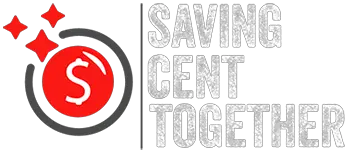Living in debt is a stressful experience. If you had signed for a loan, it is your obligation to pay it back, no matter the circumstances you are in. Even if you are experiencing a life-changing event like getting into an accident, losing a job or even increased expenses because of a new born, your lenders still expect their money back – plus interest.
In fact, even graduating from college immerses people in debt with the average debt for a college student standing at $36,900 in 2021. What’s more, the average household in America owed $6270 in credit card debts in 2021. Therefore, it’s easy to see why so many people are struggling with debt – and some choosing to bury their heads.
However, there are times when disaster strikes and an individual has to face reality. Some life-changing events can easily knock anybody’s finances off track, so much so, that they are barely able to keep up with the required monthly payments. Fortunately, there are a few strategies that can help make paying off your debts faster.
Tip #1: Make a Conscious Decision NOT to Borrow Money
If you are looking into ways of getting out of your debt situation faster, then you have to stop acquiring debt to fund the lifestyle you are used to. This translates to no more tests driving new cars that you can barely afford, signing up for credit cards or financing furniture. This first step will go a long way in helping you focus on your debts so that you can develop a feasible plan of attack to pay them off fast.
Tip #2: Pay More than the Minimum
Whether you are carrying student loans, credit card debt, or personal loans, one of the best ways to reduce them quickly is by making monthly payments that are larger than the minimum required. Doing this not only helps reduce interest during the lifetime of your loan but also speeds up the repayment process. You can also avoid future repayment headaches by ensuring that loans do not charge prepayment penalties before signing the dotted line.
Tip #3: Get help
Getting professional help from debt professionals takes on many forms. One of the most common is debt counseling where a trained professional helps you improve your life and solve various problems. Debt counseling, guidance, and advice offered are often limited to an individual’s money management skills and issues such as saving, spending, budgeting, and others.
There are also technical and legal issues a counselor can help out with. It may be hard for the typical individual to understand all the ins and outs that go into mortgage refinancing regulations or the particular covers offered by consumer protection laws. A counselor will be in the best position to answer your question on such matters.
Tip #4: Create (and Live By) a Bare-Bones Budget
One of the best ways to cut down your debt levels faster is by cutting down your expenses as much as possible. A bare-bones budget is a tool that will help you shave off expenses to only those you need to go and live on for as long as possible.
The bare-bones budget may look different to different people, but it should basically not have “extras” such as eating out, unnecessary spending or cable television. As you live on this budget, you should be in a better position to pay a considerable amount of cash towards your debts. However, the bare-bones budget is only a temporary measure; once you have cleared your debt, you can add back discretionary spending into your monthly plan.
Bottom Line…
No matter the type of debt you are struggling with, it’s important to remember that there is always a way out. While it may not occur overnight, a debt-free future is in your hands, as long as you have a plan.

